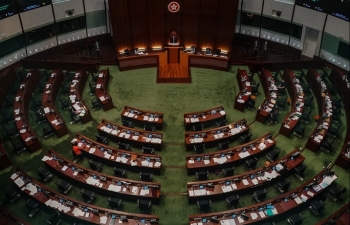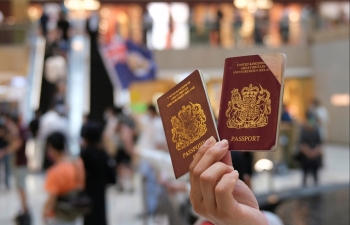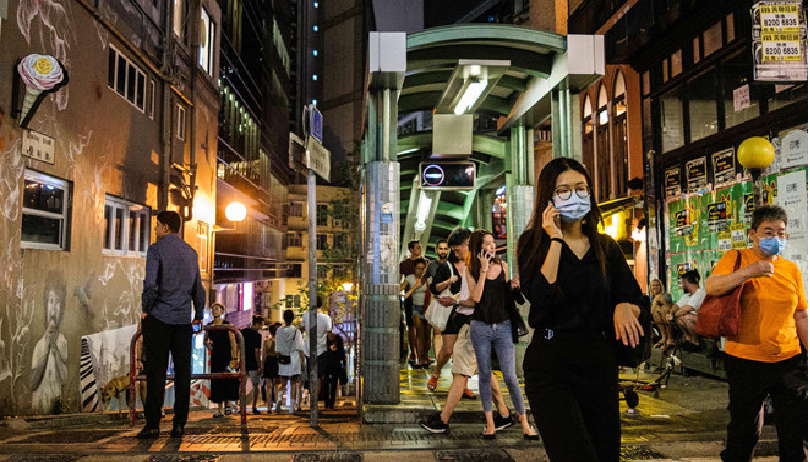Hong Kong National Security Law: 5 must-know takeaways
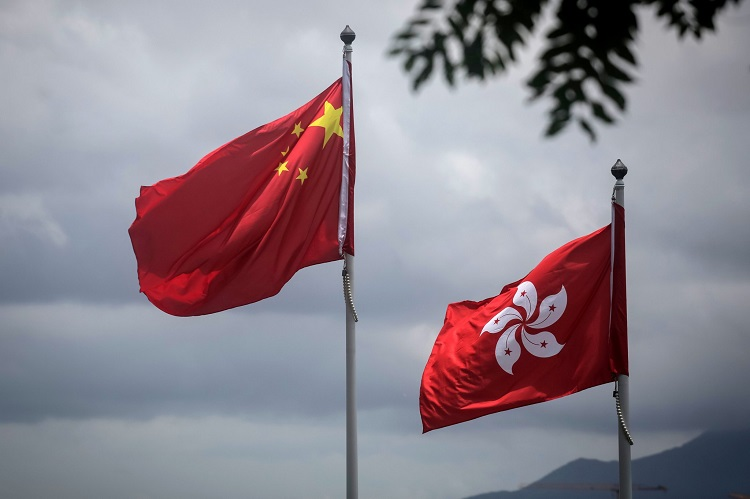 |
While the law is said to be crucial to safeguarding Hong Kong's economic development and political stability, legal experts and Hong Kong civil society leaders believe the law would end once and for all any remaining Hong Kong enjoys under Chinese rule, NPR reported. Generally speaking, the law criminalizes four types of activities, which are recession, subversion of state power, terrorism, and collusion with foreign entities, with the harshest penalty can be a life sentence.
Beijing will set up its own national security agency in Hong Kong beholden only to the mainland
With the new law, China is empowered to set up a "National Security Committee", which operates without any local checks or balances, to oversee the investigation and prosecution of any violations.
An adviser will be appointed by Beijing to “guide” the national security work. Though the level of stringency of the law remains unclear to date, legal experts say the capital now holds a legal trump card over Hong Kong.
Hong Kong national security law applies to anyone, anywhere worldwide
According to Article 38, the law is expansively extraterritorial in its scope and an apply even to offenses committed "outside the region by a person who is not a permanent resident of the region."
For example, an American penning an editorial for a U.S. newspaper that argues for sanctions against China could technically fall afoul of the law for "inciting hatred" against Beijing.
Non-governmental organizations, foreign media outlets and other international gr0ups could also face heavier regulation and censorship in Hong Kong.
 | |
|
Serious national security cases will be tried in mainland Chinese courts
China will be able to assert complete legal jurisdiction against complex and serious cases or those in which a security threat is imminent, according to NPR.
In other words, China can extradite suspects to mainland China to face trial. Defendants in such cases will be subject to Chinese criminal law, sweeping aside Hong Kong’s judicial system. In case the case is deemed to contain sensitive information, China can also waive trial by jury and denied public access to the trial.
"The national security law is the total destruction of Hong Kong's legal and judicial system”, Victoria Hui, a political science professor at the University of Notre Dame was quoted by NPR as saying.
The Hong Kong National Security Law is to quell dissent in Hong Kong against Beijing’s rule
Under the new law, life imprisonment is applied to serious perpetrators of terrorism, subversion, collusion with foreign forces and secession.
The law also appears to be designed to address specifically a raft of proposed legislation Hong Kong's government was forced to suspend in recent decades due to popular opposition.
On top of that, the law mandates anyone entering public office in Hong Kong to take an oath swearing allegiance to Beijing.
Already, a chill is spreading through Hong Kong
Two opposition political parties in Hong Kong announced they were voluntarily disbanding just hours after the issuance of the law. Other activists have resigned from organizations that may now be considered subversive.
In order to remove speeches that are deemed subversive or secessionist, Hong Kong residents have been deleting their social media accounts en masse. Moreover, virtual private network software have been sold like hotcakes in Hong Kong.
On Wednesday, one day after the Hong Kong National Security Law took effect, thousands of Hong Kong residents roamed the street to protest the law and Hong Kong's handover to Chinese rule. For the first time in 23 years, organizers were denied permission to congregate in commemoration of the 1997 handover.
The police have arrests groups of people on the first full day after the law took effect, including one man who unfurled a flag advocating for Hong Kong's independence from China.
| The new national security law came into effect at 11 p.m on 30 June and it was noted by the BBC to have come into effect just before the 23rd anniversary of the 1 July 1997 handover, an event that annually draws large pro-democracy protests. Al Jazeera's Katrina Yu said "It's very symbolic that this law has been passed just a day before the anniversary of Hong Kong's handover from Britain back to mainland China", saying it was a power play by China. On 1 July, ten people were arrested for breaking the new law. |
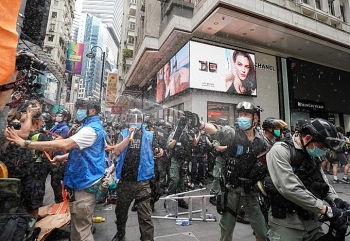 | Protest against security law in Hong Kong: 370 people arrested 370 people were arrested as police used tear gas and water cannons to disperse the crowds protesting against Hong Kong security law. |
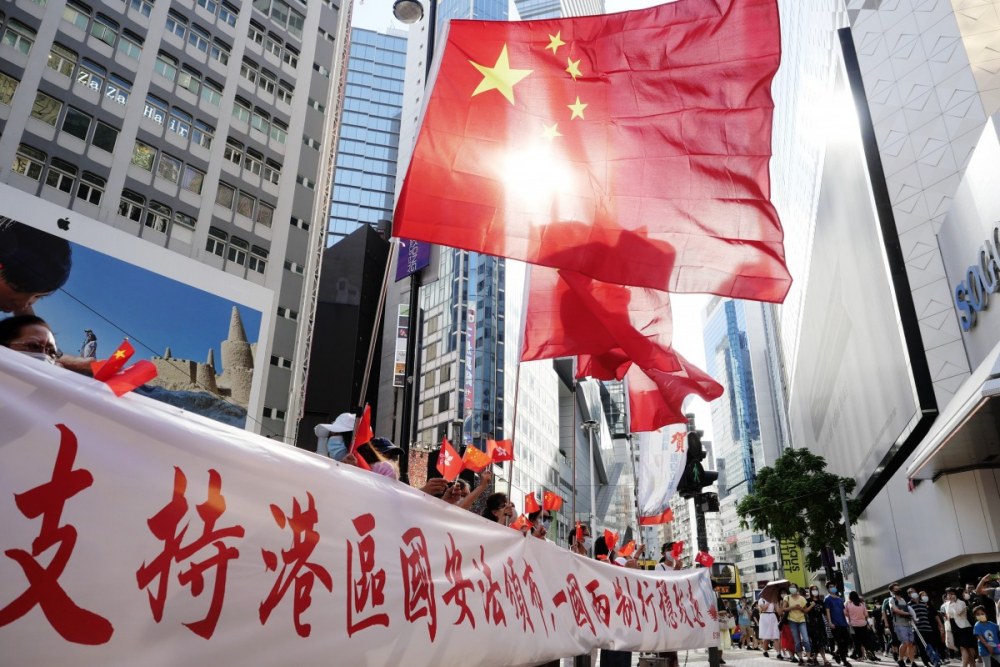 | World news today July 1: Chinese President Xi signs Hong Kong national security law into effect World news today July 1: President Xi Jinping on Tuesday signed into effect a Hong Kong national security law, EU recommends lifting travel restrictions on 15 countries from ... |
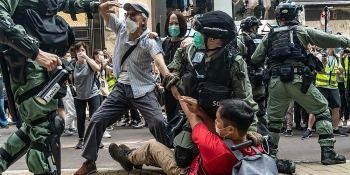 | China's new National Security Law looms over Hong Kong, Trump Administration put new restrictions on the territory The US will end the exports of US-origin defense equipment to Hong Kong, Secretary of State Mike Pompeo announced Monday after China set to pass a law ... |
Recommended
 World
World
'Action Was Entirely Justifiable': Former US NSA John Bolton Backs India's Right After Pahalgam Attack
 World
World
US, China Conclude Trade Talks with Positive Outcome
 World
World
Nifty, Sensex jumped more than 2% in opening as India-Pakistan tensions ease
 World
World
Easing of US-China Tariffs: Markets React Positively, Experts Remain Cautious
 World
World
India strikes back at terrorists with Operation Sindoor
 World
World
India sending Holy Relics of Lord Buddha to Vietnam a special gesture, has generated tremendous spiritual faith: Kiren Rijiju
 World
World
Why the India-US Sonobuoy Co-Production Agreement Matters
 World
World

